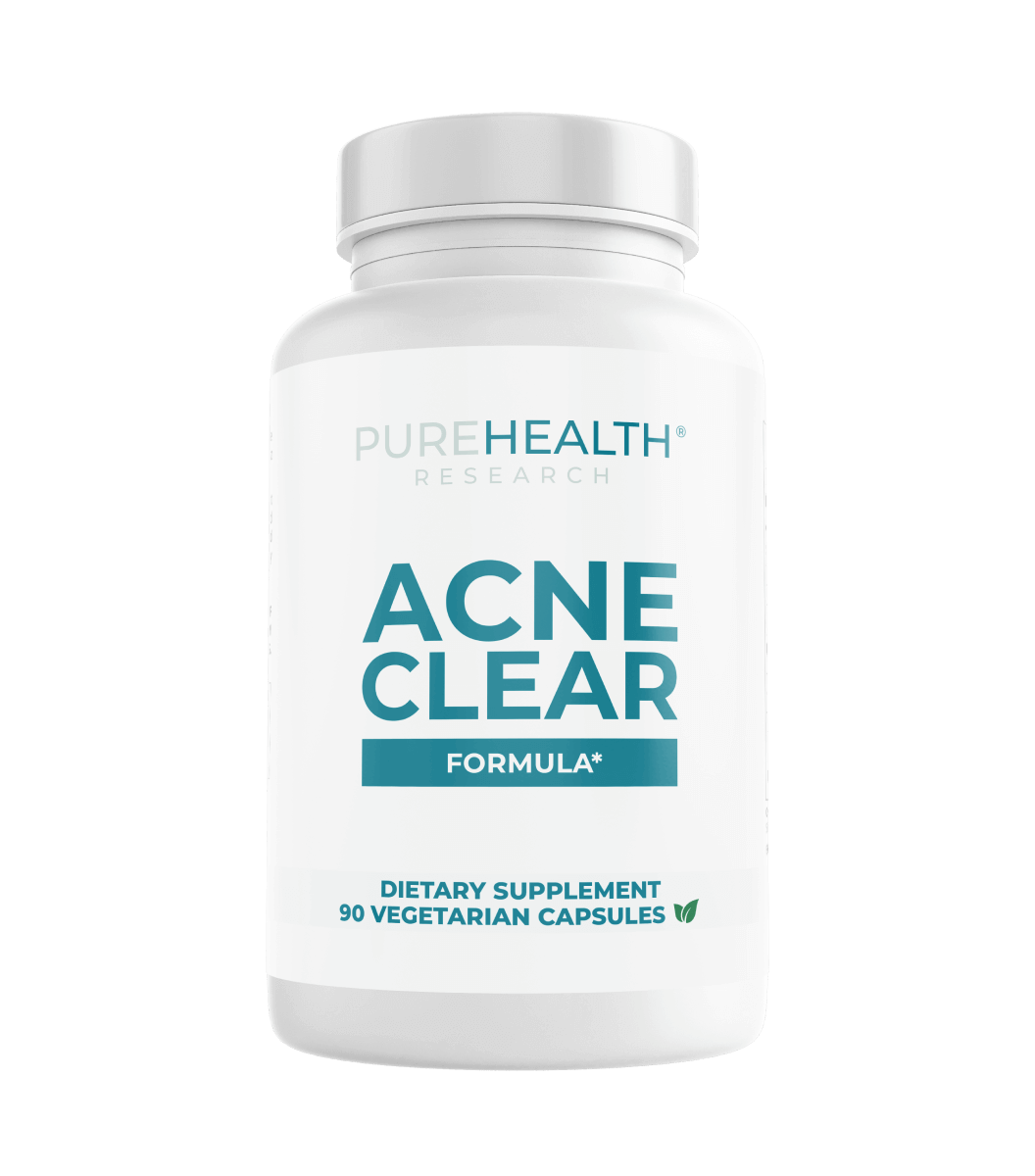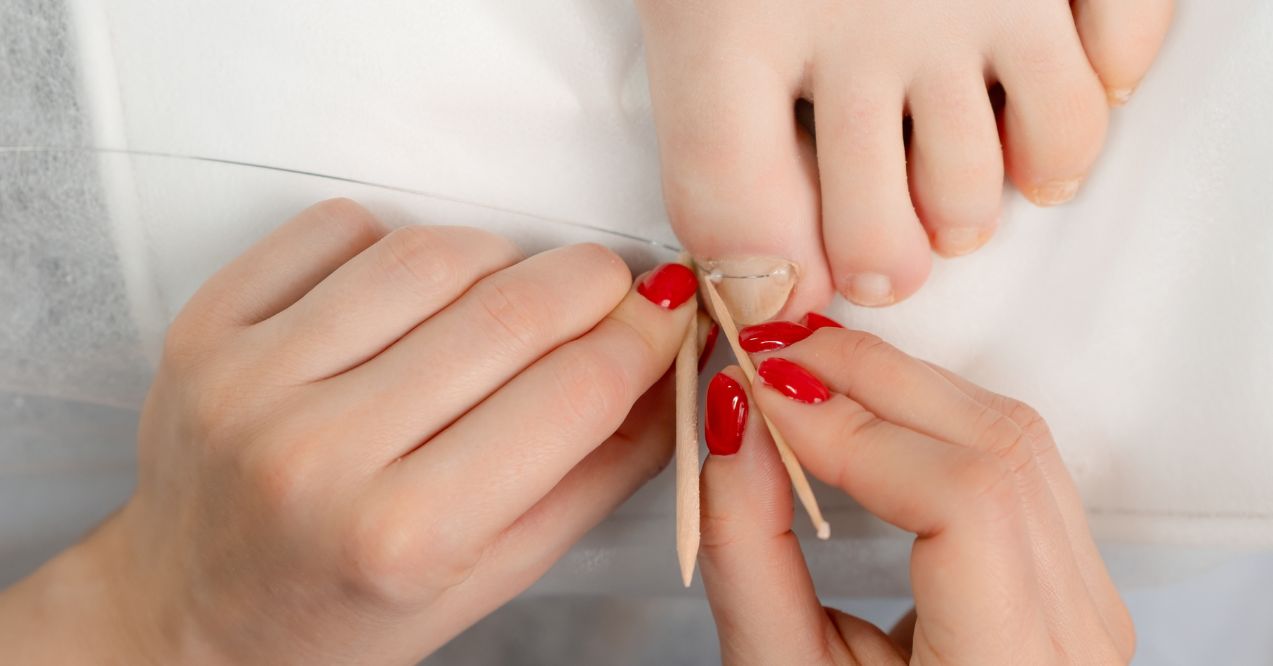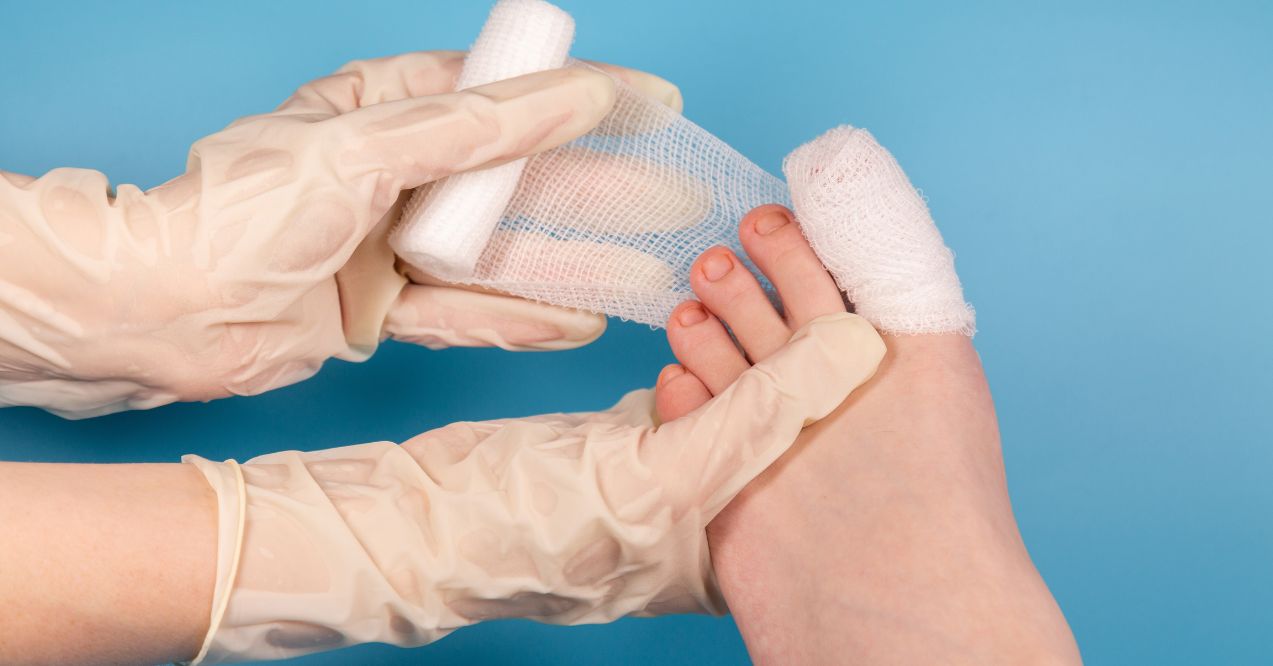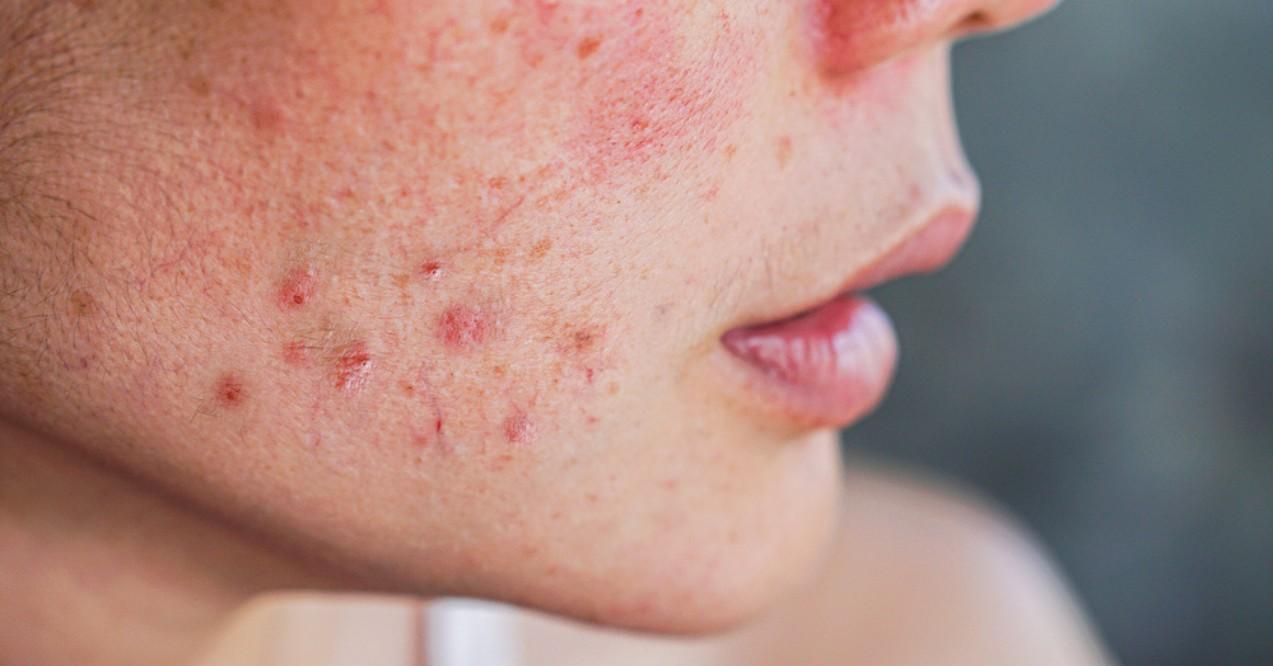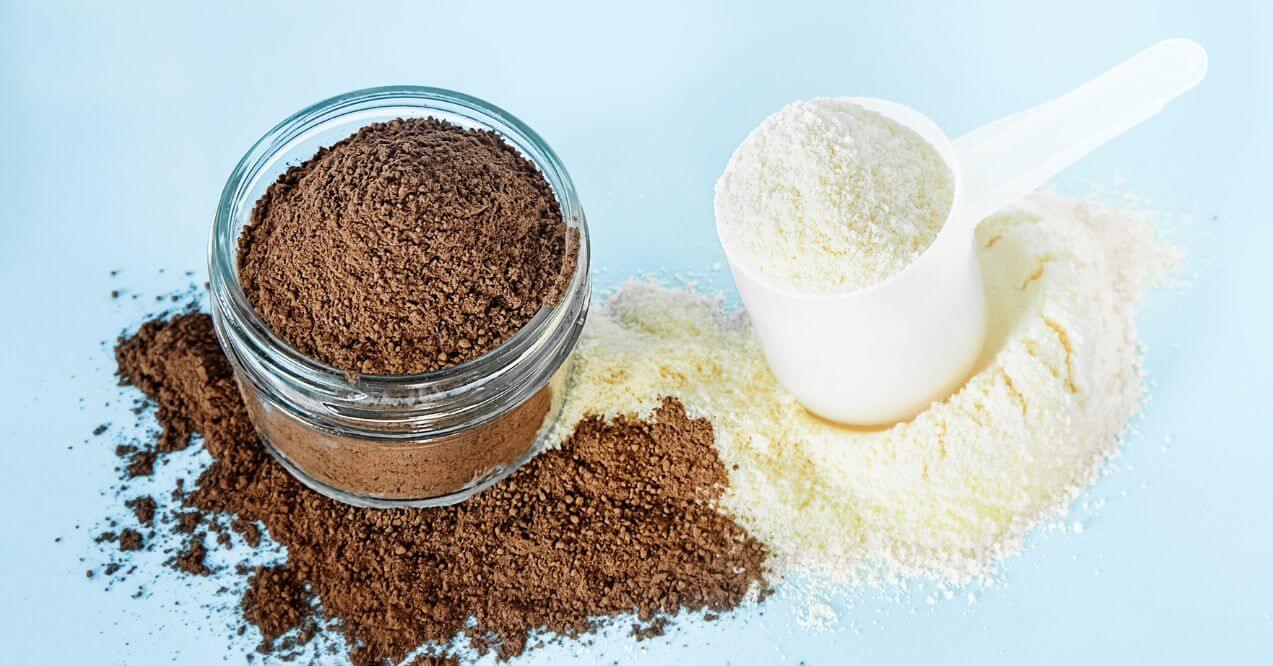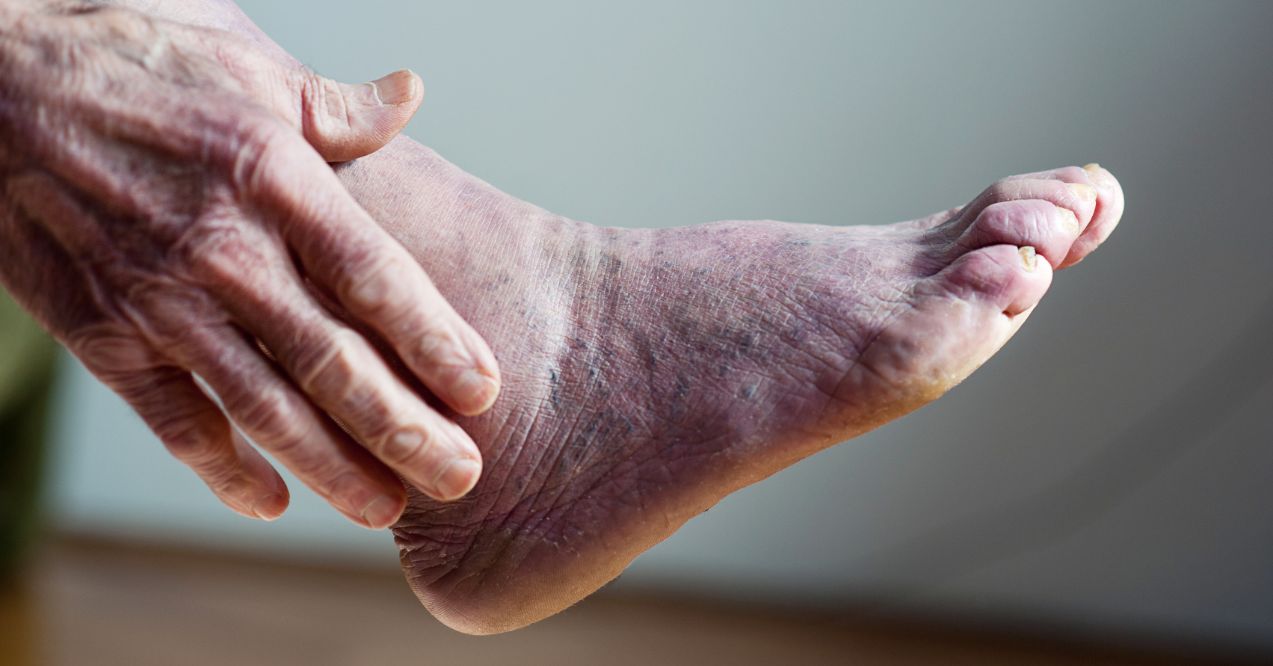What Five Supplements Can Cause Breakouts?
Discover what supplements can cause breakouts and how to manage them. Learn about key ingredients to avoid for clear skin.
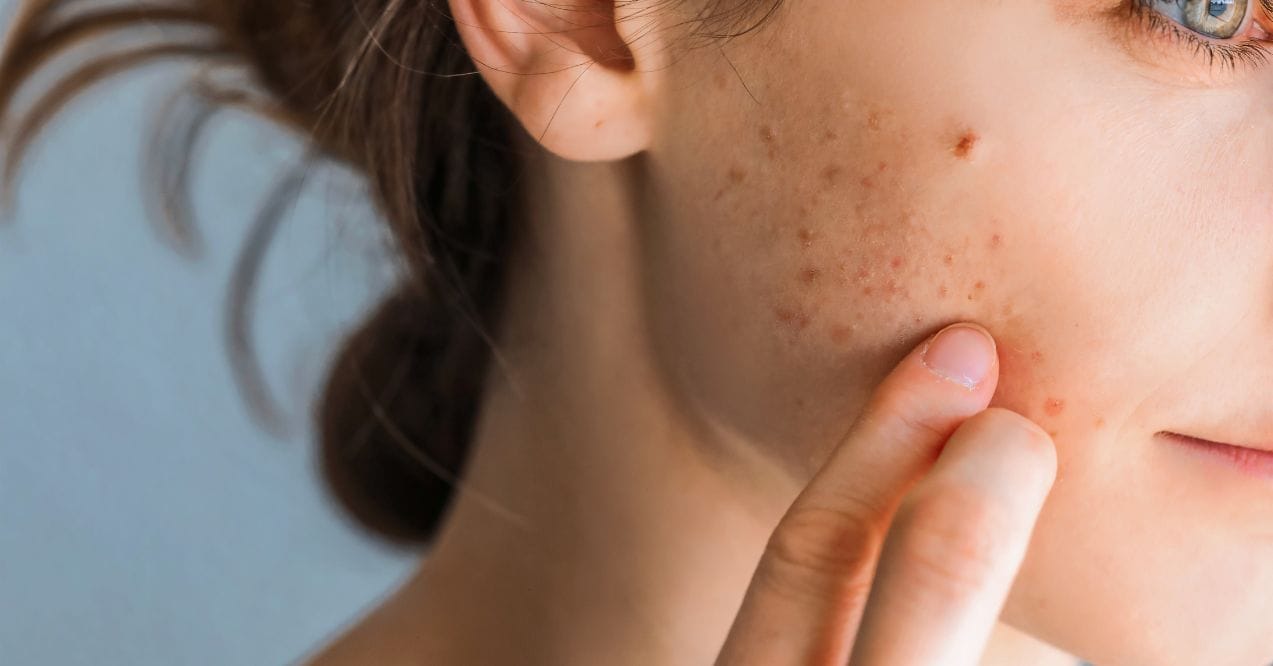

Many of us blame skincare routines and diet for frequent breakouts, but there’s another culprit hiding in plain sight – supplements. While supplements can offer a range of health benefits, certain ones may trigger skin issues, especially for those with sensitive or acne-prone skin. If you’ve noticed breakouts despite your best efforts with skincare, it could be the supplements you’re taking.
In this guide, we’ll explore what supplements can cause breakouts, why they impact the skin, and how you can manage their effects while still reaping their health benefits.
How Do Supplements Affect the Skin?
Supplements play a role in skin health, affecting it in various ways. They can influence oil production, impact the skin’s microbiome balance, and even trigger inflammatory responses, which may contribute to breakouts. While many supplements are beneficial, taking them in high doses or in synthetic forms can disrupt skin balance, leading to unwanted reactions.
Here are a few ways supplements can affect your skin:
- Oil production – Some vitamins and minerals, particularly in high doses, can stimulate oil production, which may lead to clogged pores and acne.
- Microbiome imbalance – Supplements can alter the balance of bacteria on the skin, which may encourage the growth of acne-causing bacteria.
- Inflammation – Certain supplements may increase inflammation, worsening skin conditions like acne or rosacea.
So, can vitamins cause acne? Yes, especially when taken in excess or in synthetic forms. It’s important to monitor your supplement intake and choose products that promote overall health without disturbing your skin.
What Supplements Can Cause Breakouts?
Not everyone will experience breakouts from supplements, but certain ones are common triggers for acne-prone individuals. While supplements are generally beneficial, excessive or poorly balanced intake can have unintended effects on the skin. So, what supplements can cause breakouts? The following supplements have been linked to skin issues, particularly for those who are prone to acne
1. Biotin (Vitamin B7)
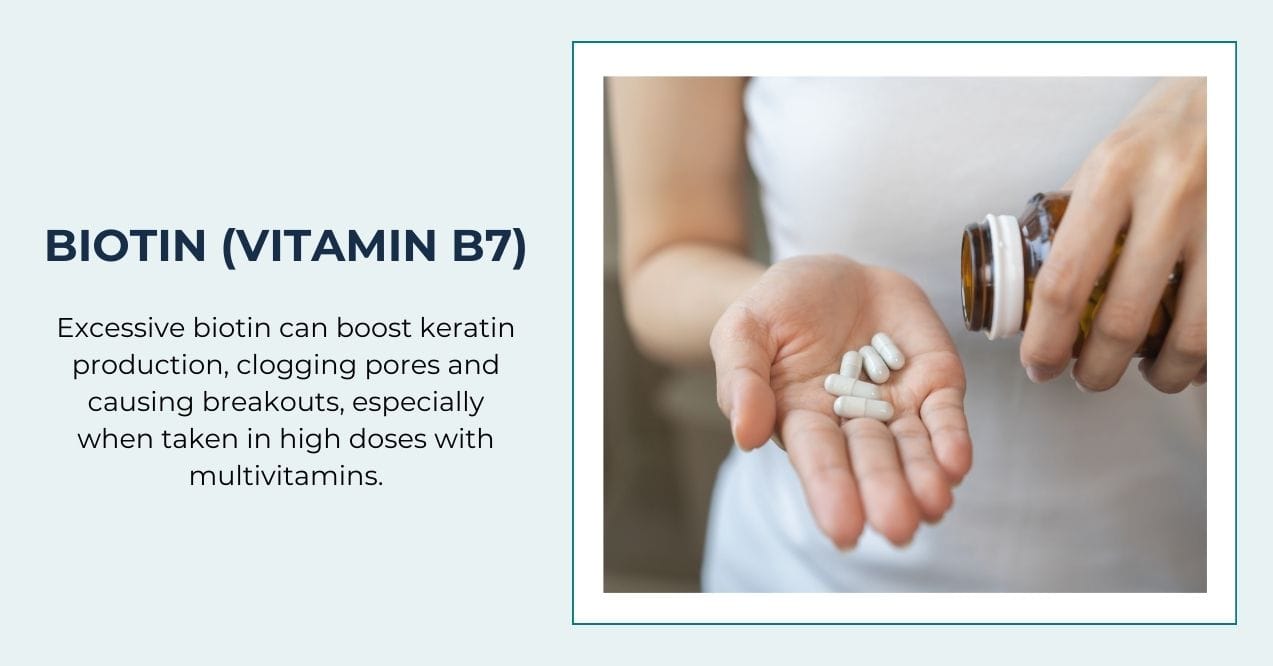
Biotin, often promoted for hair, skin, and nail health, is one of the most popular supplements in the beauty industry. However, excessive intake of biotin can contribute to breakouts in some individuals. Here’s how:
- Biotin boosts keratin production, a protein found in skin, hair, and nails, which can lead to an excess of skin cells that clog pores.
- Biotin competes with vitamin B5 (pantothenic acid) for absorption in the intestines. Vitamin B5 helps regulate skin clarity, so a lack of it can worsen skin health.
- Multivitamins and beauty supplements often contain higher doses of biotin, leading to tiny, inflamed bumps, especially on the forehead and cheeks.
For those who experience breakouts, it’s advised to moderate biotin intake and balance it with Vitamin B5 to manage its effects on skin health. Vitamins that cause acne are often linked to imbalances in the body, and biotin is a prime example of this.
2. Vitamin B12

Though essential for energy production and brain function, excessive B12 can trigger skin issues. What vitamins cause breakouts more commonly than others? B12 is high on the list when taken in large amounts:
- High levels of Vitamin B12, especially from supplements or injections, have been shown to alter the balance of bacteria on the skin, which can lead to inflammation and breakouts.
- Excessive Vitamin B12 may also increase inflammation, a key factor in acne development, especially in individuals who are prone to breakouts.
- The most significant effects are often seen when Vitamin B12 is consumed in large quantities via injections or fortified foods, rather than through natural food sources.
Consider checking your B12 levels before supplementing and space out your intake throughout the week rather than taking daily doses if you notice skin reactions.
3. Iodine
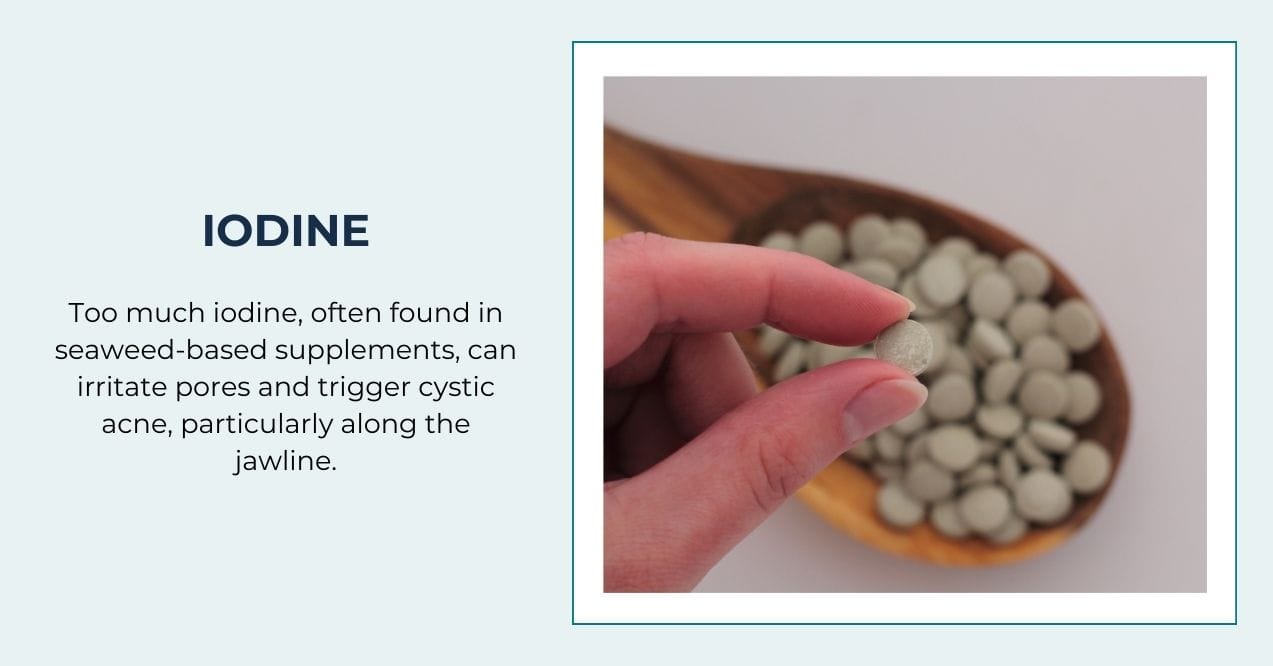
Iodine supports proper thyroid function, but excessive amounts may impact your skin. When considering vitamins that cause acne, iodine-containing supplements also deserve attention:
- Too much iodine can irritate pores, leading to the development of inflamed, cystic breakouts, particularly along the jawline and chin area.
- In some individuals, especially those prone to cystic acne, excess iodine can provoke deep, painful breakouts that are difficult to treat.
- High levels of iodine are commonly found in seaweed-based supplements and prenatal vitamins, which may contribute to breakouts in sensitive individuals.
Moderation is key when it comes to iodine intake. Opting for natural dietary sources of iodine, such as seafood, rather than concentrated supplements, can help maintain thyroid health without irritating the skin.
4. Whey Protein & Certain Protein Supplements
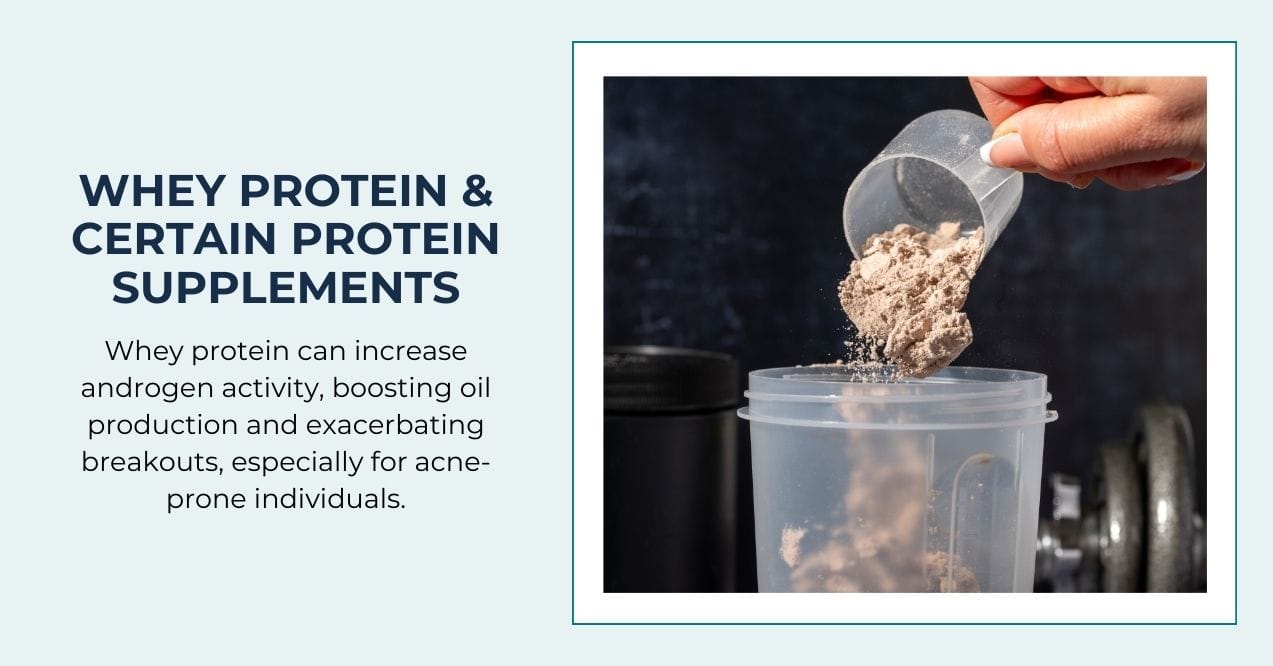
Whey protein is popular for muscle recovery but can cause skin issues in some individuals:
- Whey protein can elevate male hormone (androgen) activity, which in turn increases oil production in the skin. This excess oil can clog pores and result in breakouts, particularly on the jawline, chest, and back.
- For people who are already prone to acne, whey protein may exacerbate the condition by triggering excessive oil production and inflammation.
- If you notice breakouts after consuming whey protein, consider switching to plant-based protein sources, such as pea or hemp protein, which are less likely to affect your skin.
Wondering can magnesium cause breakouts? While magnesium itself is unlikely to, whey protein, often used alongside magnesium, may be a more likely culprit. If whey protein causes issues, switching to plant-based protein options like pea or hemp protein may help.
5. Excessive Zinc Supplementation
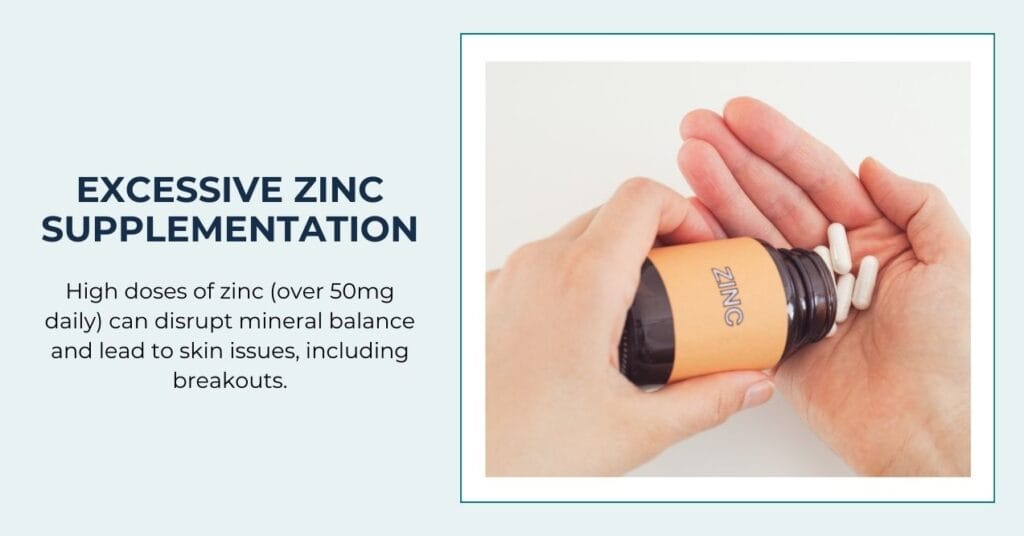
Zinc is known for its immune-boosting and skin-health benefits, but too much zinc can lead to unexpected breakouts:
- Excessive zinc can trigger hormonal changes that lead to an overproduction of skin oils, increasing the likelihood of clogged pores.
- High doses of zinc (greater than 50mg per day) can cause imbalances with copper and other minerals, which can further disrupt skin health.
- Keep your zinc intake moderate (15-30mg daily) and balance it with copper to avoid any adverse effects on your skin.
Remember, what vitamins cause acne can vary from person to person, but these five supplements are among the most commonly reported triggers.
Supplements That Support Clear Skin
Not all supplements cause breakouts – some can actually support healthy, balanced skin. Here are a few that promote clear skin:
- Zinc (in moderate doses) – Zinc helps support skin integrity and reduces irritation, making it beneficial for acne-prone skin.
- Turmeric & Reishi Mushroom – Both have soothing properties that help calm and balance the skin, promoting a healthier complexion.
- Probiotics – By restoring gut balance, probiotics can support clear skin from the inside out, as skin health is closely linked to gut health.
- Omega-3 Fatty Acids – These healthy fats help maintain skin hydration and support the skin barrier, preventing dryness and irritation.
Acne Clear Formula combines 11 premium, natural ingredients specifically selected to help neutralize acne outbreaks. Its unique, multi-faceted formula targets not only the physical symptoms of acne but also addresses the emotional and mental strain that often accompanies breakouts.

By incorporating essential ingredients like Vitamin E, Zinc, and Vitamin D, Acne Clear Formula works to support skin integrity, reduce irritation, and promote a balanced, healthy complexion. This formula helps to calm inflammation, minimize blemishes, and restore skin clarity. Offering a comprehensive approach to skin health, Acne Clear Formula is one of the best beauty supplements to add to your daily skincare routine for clearer, more confident skin.
How to Choose Skin-Friendly Supplements
When selecting supplements to support skin health, it’s important to look for products that offer balanced and complementary nutrients. Here are a few practical tips to help you choose skin-friendly supplements:
- Look for products that are free from irritants like iodine, soy, or synthetic fillers, which can aggravate the skin.
- More isn’t always better. High doses of certain vitamins, such as Vitamin B12 or biotin, can actually trigger breakouts rather than prevent them.
- Choose supplements that combine complementary nutrients, like Zinc and Vitamin E, to support skin health without causing nutrient imbalances. This will ensure your skin gets the support it needs without unintended side effects.
By carefully selecting supplements with these factors in mind, you can promote overall skin wellness without compromising your skin’s clarity.
In addition to supporting skin clarity, maintaining overall skin and nail health is essential, especially in the early stages of toenail fungus, when subtle changes like discoloration or brittleness may appear. Choosing the right supplements may contribute to stronger skin and nails, providing proactive support before concerns progress.
Final Thoughts
Certain supplements, including biotin, B12, iodine, whey protein, and high-dose zinc, may contribute to breakouts, especially for individuals prone to acne. While not everyone will experience skin issues, it’s important to carefully monitor dosage and the quality of supplements. Maintaining balance in your supplement routine is crucial for supporting both overall health and skin clarity.
If you’re unsure about how your nutrient intake may be impacting your skin, it’s always a good idea to consult a healthcare professional for personalized advice. This approach will help you achieve the best results for both your skin and overall well-being.
Supplements like biotin, B12, iodine, whey protein, and high doses of zinc are common triggers for breakouts, especially for acne-prone individuals. These may affect oil production or disrupt skin bacteria, leading to acne flare-ups.
Certain pills, such as oral contraceptives, steroids, and supplements containing biotin or B12, may cause breakouts. They can affect hormone levels, oil production, or skin bacteria, contributing to acne in sensitive individuals.
Vitamin D supplements typically don’t cause breakouts, but excessive amounts can lead to imbalances in calcium and other nutrients, potentially triggering acne. It’s important to stick to recommended doses and consult a healthcare provider if concerned.
Vitamin A, especially in high doses (e.g., from supplements), can trigger acne in some individuals by increasing skin cell turnover and causing clogged pores. However, when used correctly, it can also help manage acne by promoting healthy skin.
Sign up for our Healthy Living newsletter!
Advertisement. This site offers health, wellness, fitness and nutritional information and is designed for educational purposes only. You should not rely on this information as a substitute for, nor does it replace, professional medical advice, diagnosis, or treatment. If you have any concerns or questions about your health, you should always consult with a physician or other health-care professional. Do not disregard, avoid or delay obtaining medical or health related advice from your health-care professional because of something you may have read on this site. The use of any information provided on this site is solely at your own risk.
